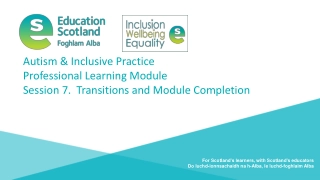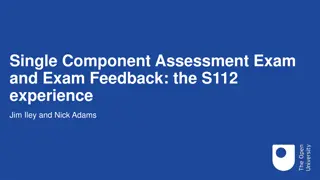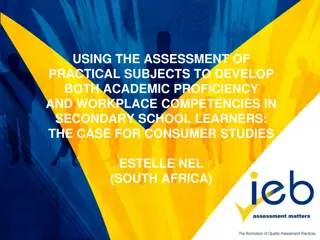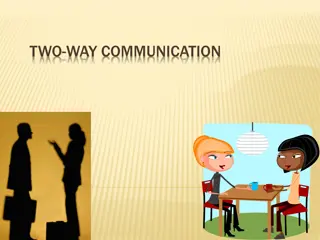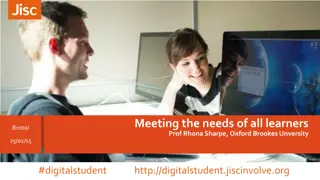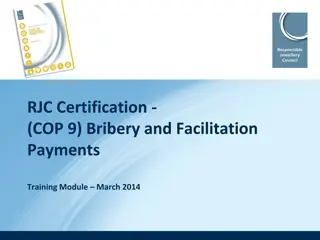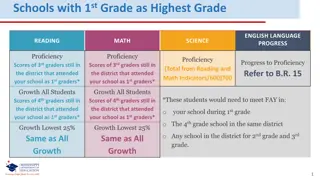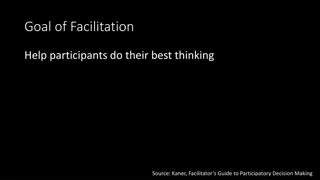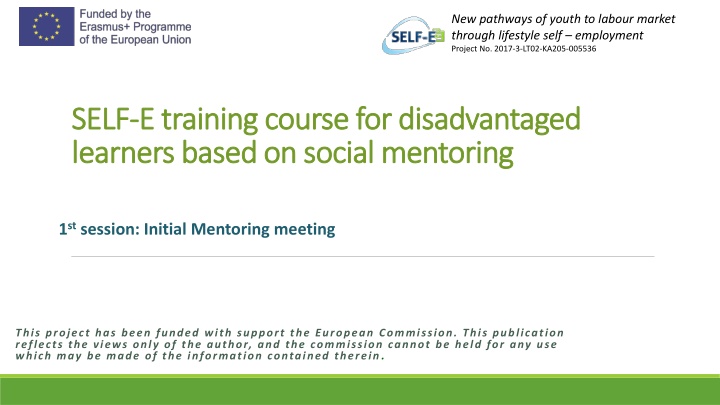
New Pathways of Youth to Labour Market Through Lifestyle Self-Employment Project
"Explore the SELF-E Training Course aimed at fostering youth inclusion and employability through innovative lifestyle entrepreneurship. The project focuses on social mentoring and practical online learning sessions to enhance self-employment skills. Join to develop individual plans, assess competences, and embark on a journey towards self-employment success."
Download Presentation

Please find below an Image/Link to download the presentation.
The content on the website is provided AS IS for your information and personal use only. It may not be sold, licensed, or shared on other websites without obtaining consent from the author. If you encounter any issues during the download, it is possible that the publisher has removed the file from their server.
You are allowed to download the files provided on this website for personal or commercial use, subject to the condition that they are used lawfully. All files are the property of their respective owners.
The content on the website is provided AS IS for your information and personal use only. It may not be sold, licensed, or shared on other websites without obtaining consent from the author.
E N D
Presentation Transcript
New pathways of youth to labour market through lifestyle self employment Project No. 2017-3-LT02-KA205-005536 SELF SELF- -E training course for disadvantaged E training course for disadvantaged learners based on social mentoring learners based on social mentoring 1st session: Initial Mentoring meeting This project has been funded with support the European Commission. This publication reflects the views only of the author, and the commission cannot be held for any use which may be made of the information contained therein.
Aim of Aim of the thesession session To present the SELF-E Training Course To introduce the social mentoring on lifestyle self-employment and its process To assess the learners competences using online tool To develop individual plans for mentees To introduce the Learner s guide To give tasks for the 2nd online session for self e-learning on first thematic area
SELF SELF- -E Training Course E Training Course The SELF-E training course is a course based on social mentoring which includes face-to-face mentoring sessions and on-line learning using set of the practical exercises-OERs. The main aim of the course is to foster youth learners inclusion and employability by introducing innovative approach for self-employment via Life-Style Entrepreneurship.
Sample of lesson plan for innovative SELF Sample of lesson plan for innovative SELF- -E training course E training course (1) (1) SELF-E training phase Duration hours Sessions Content; OERs At least two weeks prior 1st session Selecting mentors and mentees; Matching mentors and mentees Check eligibility Preparation 1st session. 4 Initial Mentoring meeting Getting to know each other Introduction to the social mentoring Short presentation of SELF-E training course Assessment of learners competences using online tool Developing individual plans for mentee Introduction to learner s guide Setting tasks for individual on-line session Initial face-to-face mentoring meeting
Sample of lesson plan for innovative SELF Sample of lesson plan for innovative SELF- -E training course E training course ( (2 2) ) SELF-E training phase Duration hours Sessions Content; OERs 2nd session. 10 First thematic area self- learning Working individually online on first thematic area: Entrepreneurship and self-employment (SE) Learners choose OER s from the first thematic area Online sessions on Entrepreneurship and self- employment (SE) 3rd session. 4 First thematic area deepening knowledge in the classroom Working in the group to deepen knowledge on first thematic area through practical exercises Motivation to become self-employed Giving tasks for the fourth on-line self e-learning session on second thematic area Face-to-face meeting on Entrepreneurship and self- employment (SE)
Sample of lesson plan for innovative SELF Sample of lesson plan for innovative SELF- -E training course E training course ( (3 3) ) SELF-E training phase Duration hours Sessions Content; OERs 4th session. 10 Second thematic area self-learning Working individually online on second thematic area: Life-Style Entrepreneurship Learners choose OER s from the second thematic area Online sessions on Life-Style Entrepreneurship 5th session. 4 Mid-term monitoring & Second thematic area Working in the group to deepen knowledge on second thematic area through practical exercises Motivation to become self-employed Giving tasks for the 6th session on-line self e-learning session on third thematic area Mid-term monitoring of mentoring sessions Face-to-face meeting on Life- Style Entrepreneurship Mid-term monitoring of the mentoring
Sample of lesson plan for innovative SELF Sample of lesson plan for innovative SELF- -E training course E training course ( (4 4) ) SELF-E training phase Duration hours Sessions Content; OERs 6th session. 8 Third thematic area self- learning Working individually online on third thematic area: Business principles and Marketing in Life-Style Entrepreneurship Learners choose OER s from the third thematic area Online sessions on Business principles and marketing in Life-Style Entrepreneurship 7th session. Face-to-face meeting on Online sessions on Business principles and marketing in Life-Style Entrepreneurship 4 Third thematic area deepening knowledge in the classroom Working in the group to deepen knowledge on third thematic area through practical exercises Giving tasks for the 8th session on-line self e-learning session based success stories on LSE
Sample of lesson plan for innovative SELF Sample of lesson plan for innovative SELF- -E training course E training course ( (5 5) ) SELF-E training phase Duration hours Sessions Content; OERs 8th session. 6 Self-learning on success stories Working individually online on area: Success stories on self- employment based on Life-Style Entrepreneurship Filling in the Feedback sheet in order to bring it to 9th session Online sessions on Life-Style Entrepreneurship a way to success 9th session. 4 Final mentoring meeting Feedback on the success stories Finalization of course and personal development plan. Assessment of learners competences using online tool Feedback collection and awards Final face-to-face meeting Finalizing mentoring process Total 54 hours 2 credits
New pathways of youth to labour market through lifestyle self employment Project No. 2017-3-LT02-KA205-005536 Social mentoring on Social mentoring on lifestyle self lifestyle self- -employment employment
Mentoring Mentoringon From the educational point of view mentoring is a developmental partnership through which one person shares knowledge, skills, information and perspective to foster the personal and professional growth of someone else. The main aim of mentoring on lifestyle self-employment (LSE) is to encourage, promote and support the mentee s professional and personal development towards getting self-employed or starting his/her lifestyle business. Within the project group mentoring is used each mentor will work with a group of 4 mentees. onlifestyle lifestyleself self- -employment employment
Main roles in mentoring on LSE process Main roles in mentoring on LSE process Manager is a person experienced in management who organizes the whole mentoring process from the selection of mentees and mentors to the collecting of feedback after the process has ended (youth worker). Mentor is a skilled, experienced and esteemed person who is willing to support and advise a less experienced person. manager responsibilities and proceed mentoring in effective way (youth worker). Mentee is in general a person with a strong desire to develop personally and professionally by setting targets/goals for him/herself and by developing action plans to work towards these goals (youth learner).
Steps of mentoring on LSE process Steps of mentoring on LSE process 1. Selection of the mentees. 2. Initial mentoring meeting: Getting acquainted with the mentor and other mentees. Filling-in the Initial Questionnaire for Mentee . Signing up the Mentoring Contract. Setting personal and group goals and objectives for the mentoring process. Making the mentoring sessions scheduler. a) b) c) d) e) 3. Next face-to-face meetings: Working on the planned topics. Filling-in the Mentoring Diary. 1. 2. 4. Final mentoring meeting: Discussing the achievements. Filling-in the Final Monitoring Questionnaire . Concluding the mentoring relationships. 1. 2. 3.
Task for individual work Task for individual work Completing the initial assessment of learners competences by filling in the Assessment tool.
Practical exercise Practical exerciseNo Basic information about participants in Mentoring process Basic information about participants in Mentoring process No. 1 . 1 Aim: to exchange the important information about Mentee, Mentor and Manager for Mentoring process and to start the monitoring of the mentoring process The tasks for the exercise Step 1. Present to the group the main definition of Mentoring and importance of getting acquainted to each other. Step 2. Mentor presents Initial Questionnaire for Mentee , analyse most important and complicated parts. Mentor provides information about himself using mentioned questionnaire filling in it up orally. Step 3. Mentees fill up Initial Questionnaire for Mentee . Mentor supports and answers to the audience questions.
Practical exercise Practical exerciseNo Basic information about participants in Mentoring process Basic information about participants in Mentoring process No. 1 . 1 Duration 20 minutes. Expected result mentoring process members knows each other. Mentor disposes clear information about Mentees. Manager collects the initial data for the monitoring of the mentoring process which also helps to ensure the smooth running of the process.
Practical exercise Practical exerciseNo Mentoring Mentoringcontract contract No. 2 . 2 Aim: to get acquainted with the contents of the Mentoring Contract, agree on the Code of Ethics and sign in the Agreement. The tasks of the exercise Step 1. Mentor presents the mentees the contents of the Mentoring Contract. Step 2. Mentor with the mentees discusses and agrees on the communication rules within the group and Code of Ethics. They include it in the Mentoring Contract. Step 3. Each group of the mentees signs up the Mentoring Contract. Mentor and Manager signs the Contract too. Duration 30 minutes Expected result the mentees has a clear idea on the main rules within the mentoring process and agrees following it.
Practical exercise Practical exerciseNo Mentoring goals and objectives Mentoring goals and objectives No. . 3 3 Aim: to describe and purify individual and group goals and objectives of the mentees for Mentoring process. The tasks of the exercise Step 1. Present to the group of the mentees the importance of goals and objectives in mentorsing. Step 2. Mentor presents Personal goals and objectives of a Mentee for a Mentoring on LSE and Goals and objectives of the group for a Mentoring on LSE . Step 3. Mentees fill-in the both documents. Mentor facilitates the filling-in process.
Practical exercise Practical exerciseNo Mentoring goals and objectives Mentoring goals and objectives No. . 3 3 Duration 30 minutes. Expected result each mentee and each mentoring group has set the goals and objectives for the mentoring process.
Practical exercise Practical exerciseNo Mentoring sessions plan Mentoring sessions plan No. . 4 4 Aim: to plan the face-to-face mentoring meetings scheduler. The tasks of the exercise Step 1. Mentor introduces the Session plan for mentoring on LSE template. Step 2. Mentor with his/her group of the mentees discusses and agrees on the dates for the next sessions and fill-in the session plan. They also includes the topics for the sessions following the suggested lesson plan of SELF-E training course. Duration 15 minutes. Expected result planned dates of next mentoring sessions to be reviewed and updated during every session.
Learners Guide Learner s Guide Before continuing learning through the SELF-E Training Course, each learner should read the Learner s Guide.
Mentoring diary Mentoring diary At the end of each mentoring session the Mentoring Diary should be filled in by the mentees. The suggested method for filling in the diary is that one of the mentee fills in the diary by rotation. At the end of each meeting, the mentor writes some comments at the end of the diary.
Homework Homework Setting tasks for the 2nd online session Individual online work on the first thematic area: Entrepreneurship and self-employment (SE)

